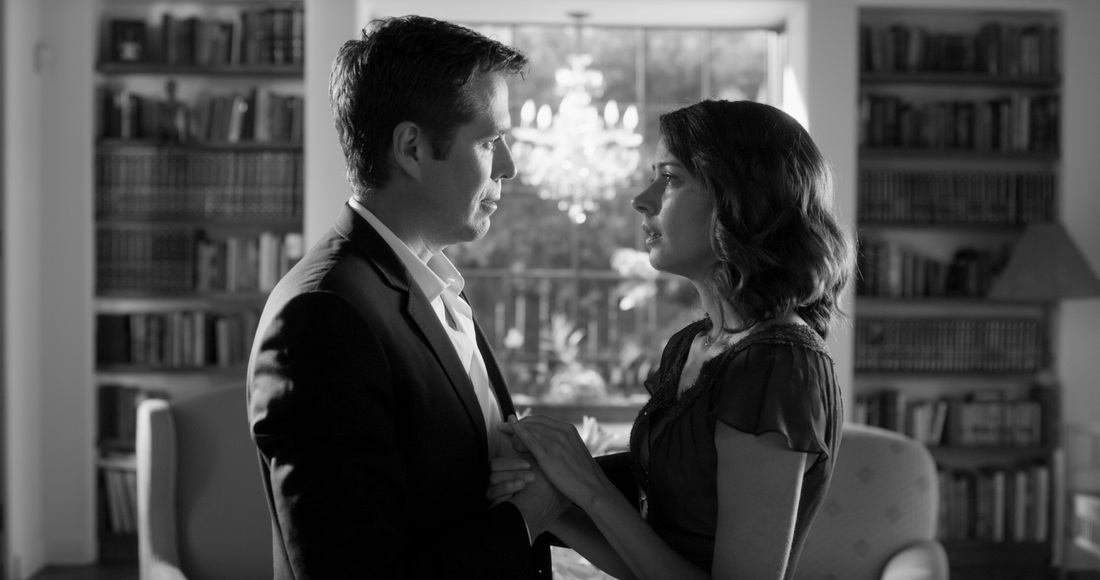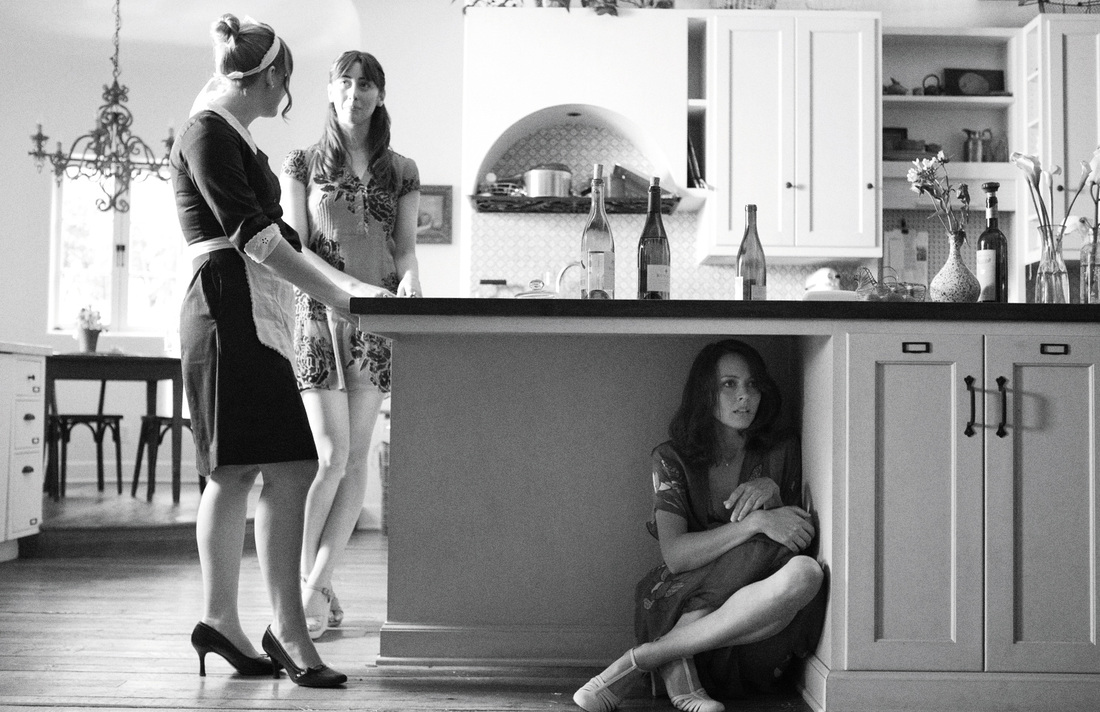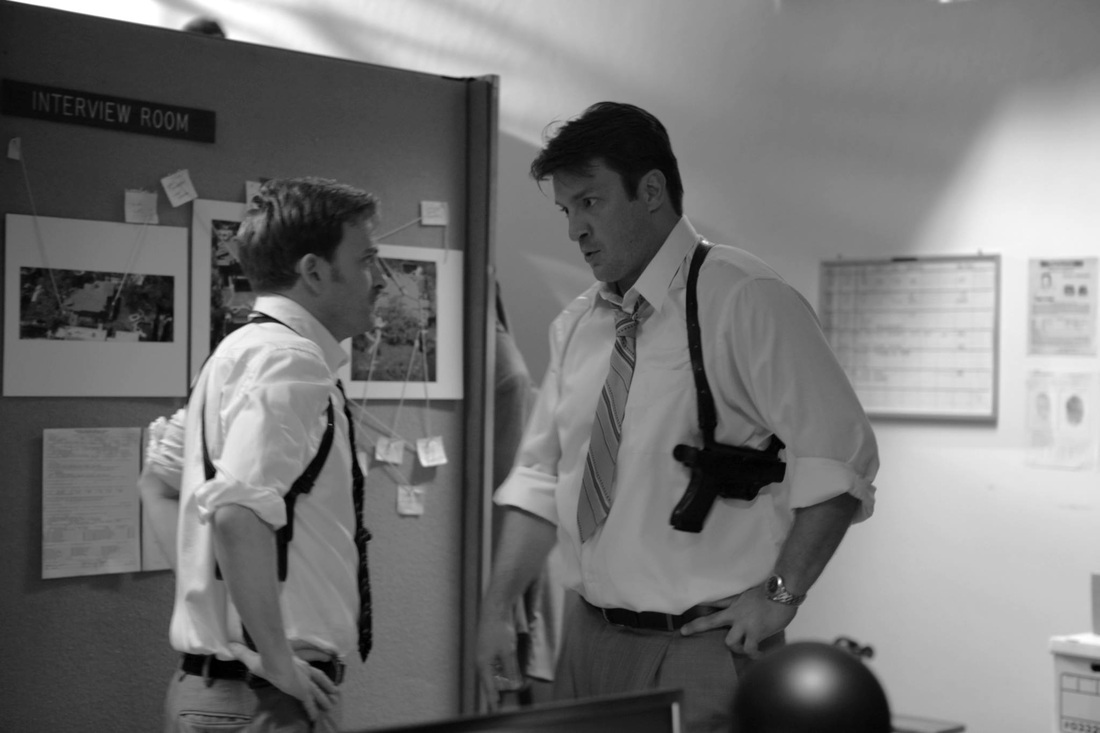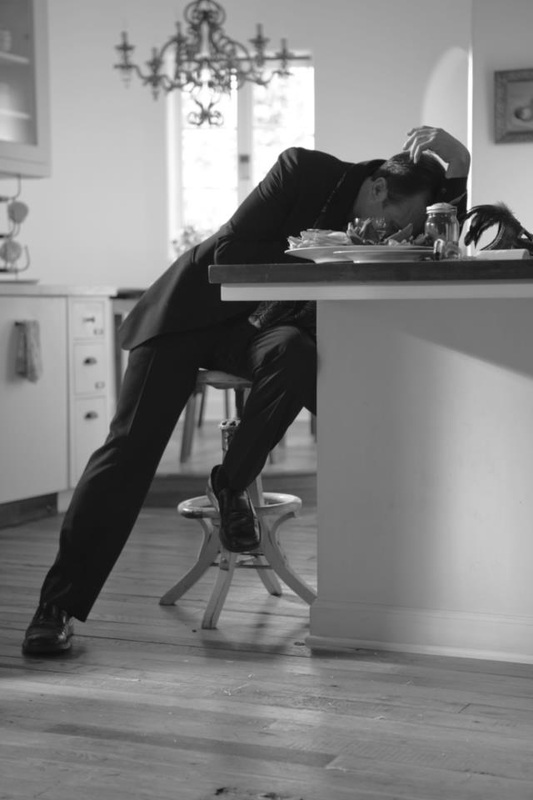|
How entertaining? ★★★★☆
Thought provoking? ★★☆☆☆ 24 May 2013
This article is a review of MUCH ADO ABOUT NOTHING.
|
“Thou wast ever an obstinate heretic in the despite of beauty,” Don Pedro
As a home movie, where that home movie is made up of accomplished television and movie thespians, we have a template for how to film Shakespeare in one locale, harnessing a brief schedule. So as an exercise in constraints, this adaptation of MUCH ADO ABOUT NOTHING should be a benchmark. However, from the gifted mind that brought us THE AVENGERS, BUFFY THE VAMPIRE SLAYER and THE CABIN IN THE WOODS, he should have taken his time, and acquired a sizable budget, and let his imagination run riot.
I am an unashamed Joss Whedon acolyte, and the casting from his back catalogue is a geeky joy; so for those of a similar bent, the pleasure of say Nathan Fillion or Alexis Denisof channelling the great bard already is four stars for entertainment. However, I have the niggling sense that a Whedon interpretation might have been so much more. He has dealt deftly in the male-female dynamic through BUFFY, the duplicitous in DOLLS HOUSE, and the malevolent in ANGEL. Surely with preparation and resources he could’ve dragged elements of Shakespeare’s romantic-comedy into the 21st century?
As a home movie, where that home movie is made up of accomplished television and movie thespians, we have a template for how to film Shakespeare in one locale, harnessing a brief schedule. So as an exercise in constraints, this adaptation of MUCH ADO ABOUT NOTHING should be a benchmark. However, from the gifted mind that brought us THE AVENGERS, BUFFY THE VAMPIRE SLAYER and THE CABIN IN THE WOODS, he should have taken his time, and acquired a sizable budget, and let his imagination run riot.
I am an unashamed Joss Whedon acolyte, and the casting from his back catalogue is a geeky joy; so for those of a similar bent, the pleasure of say Nathan Fillion or Alexis Denisof channelling the great bard already is four stars for entertainment. However, I have the niggling sense that a Whedon interpretation might have been so much more. He has dealt deftly in the male-female dynamic through BUFFY, the duplicitous in DOLLS HOUSE, and the malevolent in ANGEL. Surely with preparation and resources he could’ve dragged elements of Shakespeare’s romantic-comedy into the 21st century?
|
|
|
Pulling the wool over the eyes of characters requires more credulity in our age of cynicism and world-weariness. Don John, the illegitimate brother of Don Pedro, Prince of Arragon, arrives handcuffed to the mansion of Leonato. Later, why would anyone believe anything he has to say? Confessions and capitulations are hurried. Maybe it’s unfair to criticise Whedon for Shakespeare’s inability to be transposed 400 years, or Shakespeare for that matter? THE AVENGERS helmer does still play between the lines. MUCH ADO here opens on Benedick and Beatrice in bed together and the former sneaks out. No words exchanged. The set-up for their eventual fractious reunion is given all the more bite for Benedick’s previous indiscretion. Don Pedro has brought his two friends, Claudio and the aforementioned Benedick, to visit his old friend, Leonato, Governor of Messina. Claudio quickly falls for his host’s gentle daughter, Hero, and a marriage arranged. Both Benedick and Beatrice share a distaste for love and matrimony. (Their cutting banter is a joy.) So their friends conspire to make them fall for each other. All while Don John bitterly looks on.
Shot through in a crisp, unobtrusive monochrome, the black and white allows for a distance. Contrast the pseudo-realism of Ralph Fiennes’ CORIOLANUS, which at times felt like a school production, albeit an expensive one. The house is utilised well for the machinations, both mischievous and spiteful, and its increasing claustrophobia, due to familiarity and confinement, heighten the tension.
By home footage standards, everyone should take a bow; but by Joss Whedon’s pedigree, I’m left a smidgeon bereft.







